Dialogue Options Vol. 4: Player Will Prevail
By jjnen 6 Comments
Hello and welcome to the fourth edition of this experiment called ”Dialogue Options”. Here we put our collective minds together and share our toughts on a single issue each time. Hope is that by presenting wide spectrum of opinions like this we can leave our personal biases behind and think about the issues with an open mind. Without further ado, I present to you today's topic:

This weeks issue is a kind of follow-up to the ”why does the good guy always have to win?”. It just the simple question of ”does the player have to win?”.
It's What We're Here For
by Vinny_Says
Be it sports, board games, video games or just fun at recess, we play games to have fun but we also play them to win. Yeah we might brush off a loss and claim “I still had a good time” but that time would have been so much sweeter had you been the winning party.
Video games are meant to be won and give the player a sense of accomplishment. This is their inherent purpose. This is why so many games today are incorporating elements of progress in games where there is traditionally none. For some people nothing felt as good as dominating Facing Worlds or de_dust over and over but not everyone can be like Jeff Gerstmann, so why not reward some of the lesser players too? You might ask why should losers be rewarded, but as I said, reward is the purpose of a video game.We play arcade games to get the highest score, we play online shooters to be number one on the leaderboards, we play character focused adventures to see our heroes win, we play RPGs for 1500 hours to be the strongest and have the best gear, we do all this because we want that sense of winning and accomplishment, it’s like a drug and we are all addicts. If we didn’t have this, we wouldn’t bother with any of this.
You’ll hear a lot of people say that games today are meant to be finished and that they used to be harder. I myself am guilty of this; I often feel like most boss fights in video games today are just graphics showpieces and not a test of the player’s skill. But I see games as a commodity, and like most commodities they are meant to be as simple to use for as wide an audience as possible.We want our appliances trouble-free and our phones easy to understand, why should video games be any different? You might call me a blasphemer for comparing video games to toasters but that’s an entirely different topic of conversation.
The feeling of accomplishment, or winning as the case may be, is probably what drives so many people to play video games. They are a simple way to achieve that feeling of success and they are perhaps one of the most rewarding forms of entertainment on the market. The best part is that success and reward can be completely subjective when it comes to video games. Players can feel rewarded by experiencing a good story, levelling up or beating a tough boss. While most mediums will subject an individual to only one form of recompense, video games will take it one step further.
You say Win I say What?
by Pezen

Remember that really good book, that one you sat with for hours and just couldn't put down? Remember how you savored every moment and truly emerged yourself in the narration of this adventure? Do you recall, once finished, how you bragged to all your friends how fast you blew through the book and that you probably read 50 pages in less than 30 minutes. Of course you don't (and if you do, you're a horrible human being), because what would that gain you other than the satisfaction that either your friends are slow readers or you skimmed past something important in your hurry to be the number one finisher of that book.
Game is in the branding of the hobby, and by all accounts it's roots are in a setting where the High Score were the apex of achievement. Because at one point, games didn't necessarily contain all the complex narratives we have today. It was mechanics first. As the years have passed, and the medium evolved, we've reached a point where the mechanics isn't the only thing anymore. And since we have reached this point, why keep harping the same philosphy regarding design?

When we "win" a game, we get a sense of accomplishment and the high score lists are our bragging rights. But do we really need bragging rights in a story driven experience? I remember playing through Heavy Rain and trying my damndest to get "the best" ending only to have it blow up in my face, and once the sense of disappontment over my own short-comings subsided, I was happy that it happened. I don't need to win at enjoying a well written tale (Yes, Heavy Rain had huge plot holes, but for the sake of this example and topic, let's just ignore that), I just need to enjoy it. But gamers in general are a fickle bunch of entitled brats, if we don't get what we expect out of our calculated version of the game, we freak out. Because in a complete state of irony, we yearn for new ideas, but we fear change.

Walt Williams (head writer for Spec-Ops: The Line) said in a spoilercast on Gamespot (Here, well worth your time) that one of the things they wanted to do was play with player expectations versus the reality of the situation. As players doesn't always have the full information when they enter a specifc situation in order to make a well educated decision. And the end results might not come out the way they anticipated. I think that is something games need more, ignoring player entitlement and look at the bigger picture instead. We're so used to being the masters that we're sometimes forgetting what it is like not to have all the answers and even then, that things will play out the way we expect them to. Because in most of life, it's harder to calculate those things. And why should games be so simple as to cater to our every whim?
But the question remains then, do I as a player need to feel I won? How do we define winning in games where the end goal is less clear? Is reaching the end of the road within an experience enough to be a "win" or does the end have to be a cathartic orgasm of closure and success? I say no. I don't need to feel I won, as long as I feel the road to the end was worth my time. And that the end justifies that journey, whether I am sitting there in complete and utter defeat or joy. However, if winning would imply that the end was satisfactory no matter it's implications on the game world, I could agree with such a proposition. But I don't need to "be the winner."
I Want to Not Lose
by Rappelsin
Games are designed to be beaten, and in that sense the player always needs to ”win”. Most of the time this involves player triumphing over a final boss, which says a lot about how basic the storytelling in games is most of the time. Though you can't blame the makers of these simplistic narratives since majority of gamers reward these by buying them. It's the same way as it is with the movies, people come to be entertained and a happy ending where the protagonist wins is going to be the easiest way to achieve that.
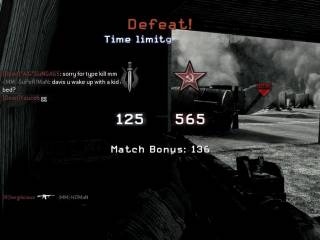
Multiplayer games are a different story because there has to be a loser. That's why you get that XP pop-up everytime after a match. You might have not won the match, but you will win the war. There needs to be a feeling that the match that you just lost wasn't just a waste of time and rewarding you in some form of pseudo-achievement is the key to that.
It all boils down to the fact that player doesn't need to win, he/she just needs not to lose. That applies both to single player and multiplayer games and it doesn't really matter how it is conveyed that you really didn't lose, even though you really-really did. In single player story telling, where at least I did feel like a winner at the end, The Walking Dead is a great example where you, the player, actually didn't win. During that bittersweet ending I felt like I had given my all to protect this little innocent girl and everything it that story was leading up to that point. I had done the impossible: Protected and raised this little girl to be a survivor in a post-apocalyptic world where danger lurks at every corner.
Stories in games need to grow a bit more but it's as much in the hands of the player as it is in the developers'. The Walking Dead did some incredible things and showed that stories in games do matter and in couple of years' time we'll be seeing a lot more great stories in games that just don't end by player defeating the final boss.
Games as an Experience
by ImmortalSayian
The philosophy behind how difficulty should be handled in games has changed drastically over the years. Modern games are designed in such a way to make them beatable, by the average player; offering little resistance. Checkpoints are offered every other step so death becomes a minor inconvenience instead of something the player fears. Instead we now fear death for what it will do to pace of a pre determined set piece as dying on the plane sequence makes it inherently less enjoyable. Many big budget games are now going towards this spectacle, set piece type of game design. Where the game is linear to a fault as you are meant to be guided to the things the designers painstakingly crafted to be impressive. These set pieces are appealing due to the sheer awe of them.

Contrast this mentality with the way games were designed in the 8 and 16 bit eras. At the time games like Contra and Mega Man were popular and respected. These games were punishing and would require a combination of trial and error and quick reflexes to succeed. The desire to conquer the game was what drove player to finish it and doing so was the reward in itself.
I often hear game described as a quality “experience” Something I never heard tell of just a few years ago. Games are no longer just systems meant to be understood. Games engage in a variety of ways now, something that has increased this generation. A game like Call of Duty I feel has simple mechanics and is not hard but people like it for the spectacle of it all. The same thrill of riding a rollercoaster or watching a bombastic action movie.
Duder, It's Over
That's all for this time and I would like to thank you for reading this. I'd also like to thank Pezen for creating again that awesome banner and everyone else in our small group who got interested in this idea in the first place.
For now we have crew big enough to accomplish things I've set to the horizon, but if you are really interested to joining in, PM me. Also if you have ideas for new topics of discussion just post them here or send a PM.


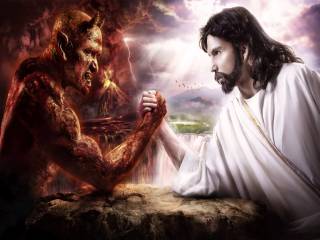


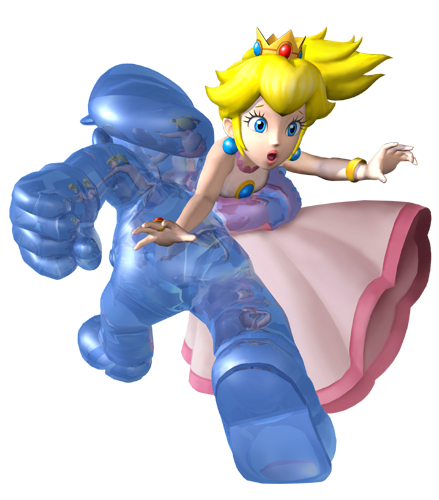

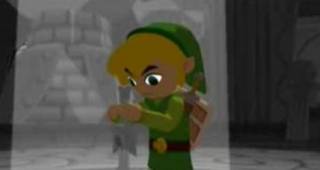

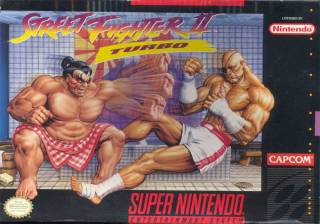
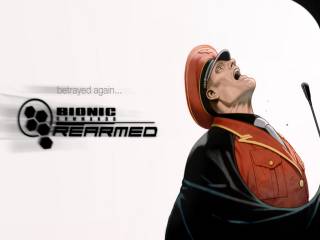
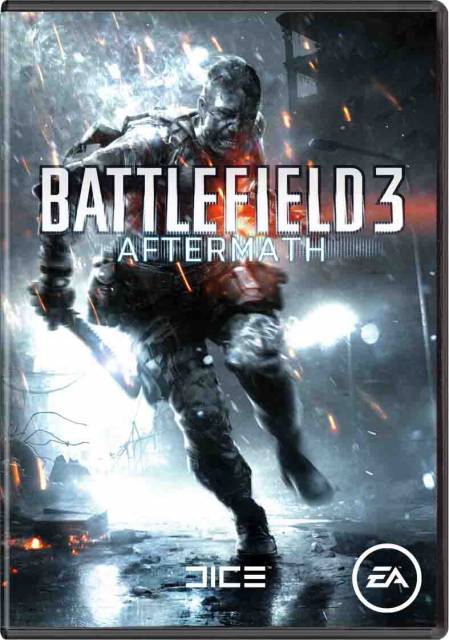
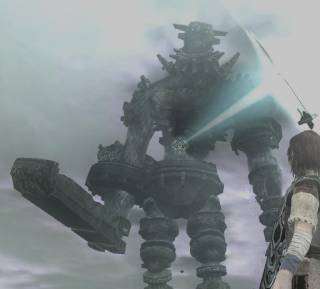

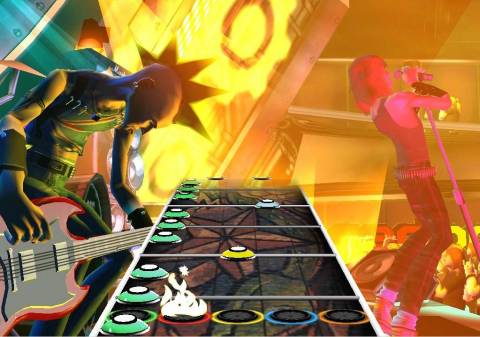
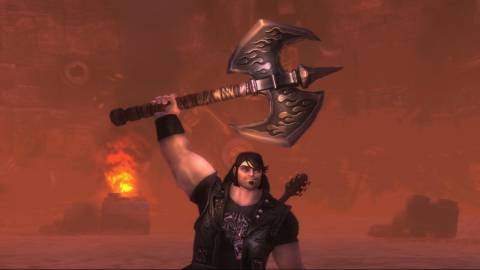

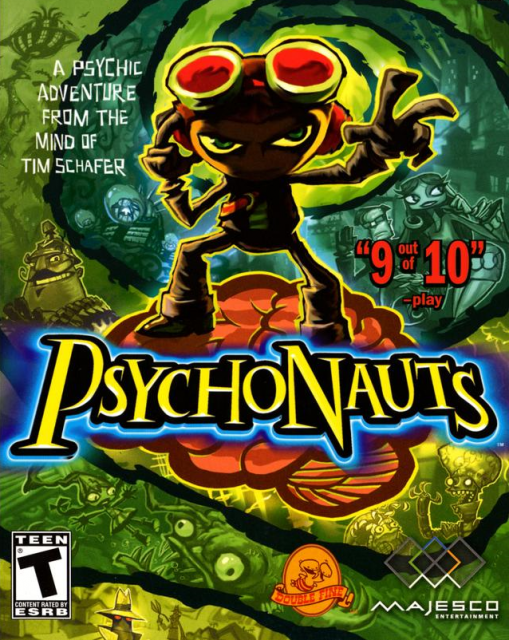

Log in to comment